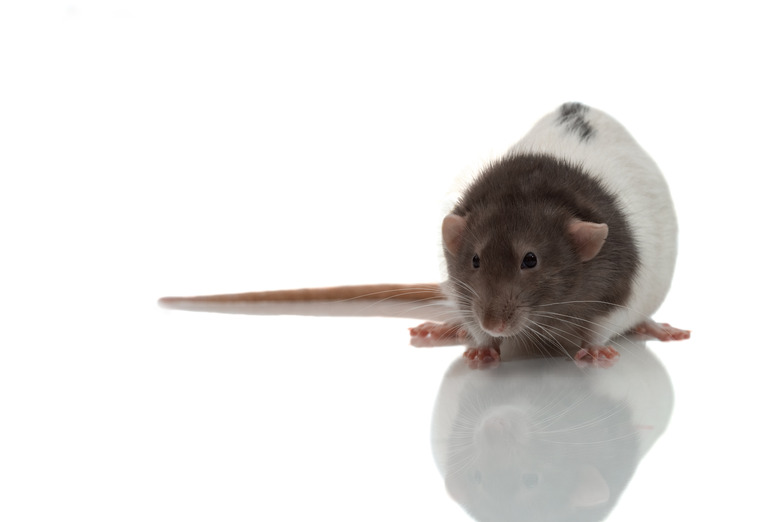Signs Of A Stroke In Rats
Stroke is a common affliction in rats and other rodents, especially as they age. A stroke is caused by a blood clot's interrupting the flow of oxygen to the brain. As with humans, a rat's chances of suffering a stroke are determined by diet, lifestyle, and heredity. Get your rat to a veterinarian immediately if you suspect a stroke. The sooner you begin treatment, the better your rat's chance of recovery.
Signs That Your Rat Is Having a Stroke
Signs That Your Rat Is Having a Stroke
During the stroke itself, the animal may suffer from convulsions, unresponsiveness, or irregular breathing. If your rat has already had one stroke, its chances of suffering another are multiplied. Strokes are uncommon but not unheard of in young rats, and quite common in older rats, especially those nearing two years or older.
Signs That Your Rat Has Had a Stroke
Signs That Your Rat Has Had a Stroke
The most common sign that your rat has suffered a stroke is paralysis or weakness in one side of the body. The affected area will simply seem to sag. Other indications that your rat may have had a stroke include listlessness, loss of appetite and loss of balance or orientation. The rat may tilt its head or walk in circles. An eye may bulge. In general, the symptoms of stroke are sudden at the onset and slow to disappear. If your rat was fine one minute and can't move the next, it is likely that it has suffered a stroke.
Treatments
Treatments
Sometimes the rat will recover without aid. Otherwise your vet may recommend an anti-inflammatory steroid such as prednisone or dexamethasone to offset paralysis. You need to begin treatment with steroids fairly soon after the stroke for them to be effective. Physical therapy helps reverse paralysis. Gently work the rat's legs. Stroke your rat and try to get it to exercise and play its favorite games.
During the recovery period, make your pet as comfortable and safe from hurting itself as possible. Some owners have had luck with Bach's Rescue Remedy Pet to keep their critters calm during this frightening time. If after a couple of weeks there is little or no improvement and the rat's quality of life has vastly deteriorated, it may be time to consider euthanasia.
